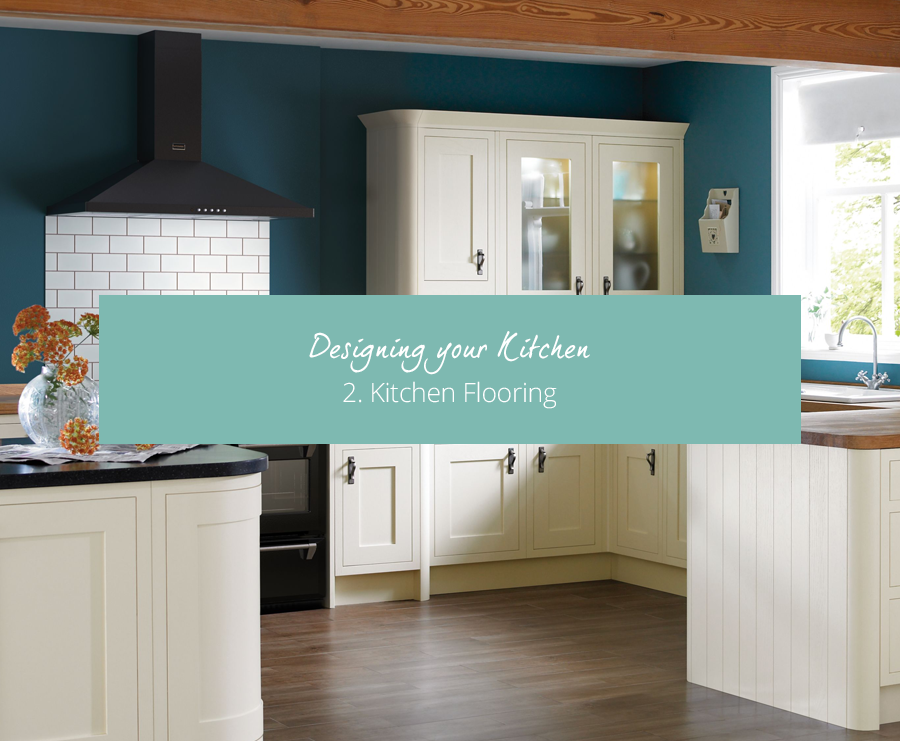Designing your kitchen (2) Kitchen flooring
Make a start on your kitchen plans by focusing on flooring first.
From tiling and hardwood to cork, vinyl and laminate, there are plenty of flooring choices to investigate. Here’s our guide to making that choice easier:

Tiling
Hardwearing, easy-to-clean and tough, floor tiles are ideal for busy areas like kitchens that get a lot of footfall. Unlike lino and carpets they don’t fade over time and you can select an assortment of finishes to complement your cabinets and walls. For example, polished porcelain tiles work well with white gloss kitchens to create a modern finish whereas natural stone tiles that feature distinct patterns and texture are perfect for shaker designs. The cons are that tiles can crack, be tricky to replace and feel cold to the touch (but under floor heating can resolve this issue).
Vinyl
Vinyl and laminate flooring is cost effective, easy to lay and simple to remove and replace when the mood strikes. It’s also hygienic, comes in a variety of designs and works well in damp or wet conditions. Classic black and white vinyl complements traditional kitchens with wooden cabinets. Vinyl is prone to fading in direct sunlight but because it’s relatively cheap you can easily change it – all you need is some special glue to do it yourself.
Hardwood
Hardwood flooring lasts for decades with the proper care and has a timeless appeal. It also has a warmth that tiled floors don’t have, making a space feel homely and cosy. Oak floors complement wooden cabinetry perfectly, like in this B&Q stonefield kitchen. You can also opt for wood effect laminate flooring, which costs less, is quick to install and doesn’t buckle or snap as it expands and contracts.
Remember you don’t have to stick to classic linear layouts either; go for tiling in a herringbone, windmill or brick style, choose borders to add a finishing touch or use rugs to add colour and texture.
25th Apr 2017The Compare Network
Copyright – Insight Retail Group Ltd 2025 All rights reserved